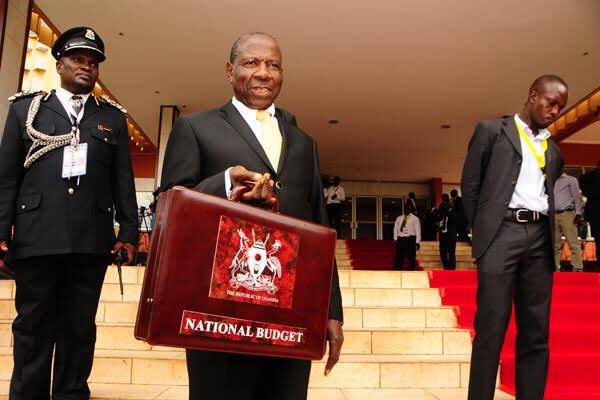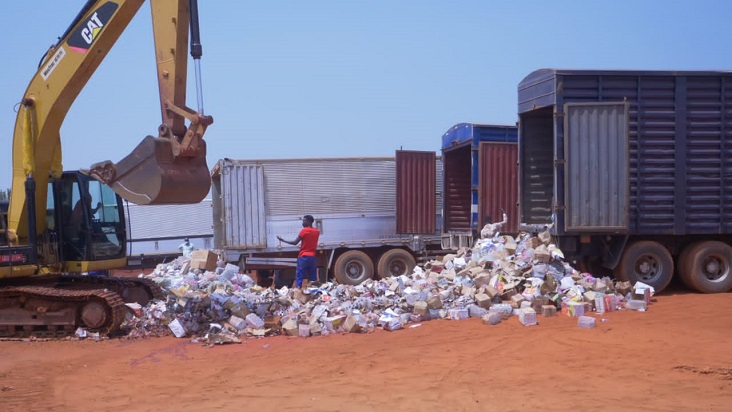Uganda’s Energy Ministry has stressed that Tullow must pay Capital Gains tax before it can be allowed to sell part of its stake to Total and CNOOC Uganda. Tullow confirmed earlier Thursday that their Sale and Purchase Agreements (SPAs) deadline had passed.
The Ministry’s Permanent Secretary, Robert Kasande in a statement on Thursday said the government’s position is that the assessed tax should be paid in line with the laws of Uganda and tax reliefs be treated in accordance with laws of Uganda.
“Government’s position is that the assessed tax should be paid in line with the laws of Uganda and tax reliefs are treated in accordance with the laws of Uganda,” he said.
The issue of contention according to Kasande was that Tullow sought to transfer its interest without payment of Capital Gains Tax arising from the sale to CNOOC and Total.
Tullow was required to pay $167m( (Shs600b) capital gains tax. While the buying Total and CNOOC were also supposed to meet certain taxes for the deal to conclude.
Tullow Chief Executive
Officer, Paul McDade earlier on Thursday said they had been informed that its
farm-down to Total and CNOOC will terminate at the end of the day (29 August
2019) following the expiry of the Sales Purchase Agreements.
He said Tullow has been unable to secure a further extension of the Sales
Purchase Agreements with its Joint Venture Partners, despite previous
extensions to the Sales Purchase Agreements having been agreed by all parties.
McDade explained that the termination of this transaction was a result of
being unable to agree all aspects of the tax treatment of the transaction with
the Government of Uganda which was a condition to completing the sales purchase
agreements(SPAs)
He noted that while Tullow’s capital gains tax position had been agreed as per
the Group’s disclosure in its 2018 Full Year Results, the Ugandan Revenue Authority
and the Joint Venture Partners could not agree on the availability of tax
relief for the consideration to be paid by Total and CNOOC as buyers.
He revealed that Tullow will initiate a new sales process to reduce its 33.33%
Operated stake in the Lake Albert project which has over 1.5 billion barrels of
discovered recoverable resources and is expected to produce over 230,000
barrels of oil per day at peak production.
McDade said the Joint Venture Partners had been targeting a Final Investment Decision
for the Uganda development by the end of 2019, but the termination of this
transaction is likely to lead to further delay.
However, the Energy Ministry insists that Tullow must have paid the disputed
Capital Gains tax before it could be allowed to farm-down part of its stake to
Total and CNOOC Uganda.
The Ministry’s Permanent Secretary, Kasande said the several engagements
between the government and three oil companies about the aborted $900 million
farm-down deal had not yielded the desired outcome.
The issue of contention according to Kasande was that Tullow sought to transfer
its interest without payment of Capital Gains Tax arising from the sale to
CNOOC and Total.
The other issue of standoff was that the government has insisted that the
farm-down would only proceed only after certain tax deductions not ordinarily
transferable to buyers be transferable to the buyers.
Uganda Revenue Authority according to Kasande communicated the said tax to the
Joint Venture Partners on 10th August 29, 2019 to the Joint Venture partners
leading to the current standoff.
The Joint Venture Partners have during the negotiations disagreed on of tax
relief for to be paid by Total and CNOOC as buyers. CNOOC Uganda had not issued
a statement about the latest developments by the time of filing this report.
“We are therefore confident that as Tullow moves to re-initiate a new sales
process, the JVPs will remain committed to fulfilling tax obligations”
said Kasande in a statement.
He added that the government will continue to work with the threes oil companies (Joint Venture to ensure that a Final Investment Decision (FID) is achieved at “earliest and in a manner that safeguards the country’s interests and sovereignty, while delivering a healthy return on investment for licensees.”





